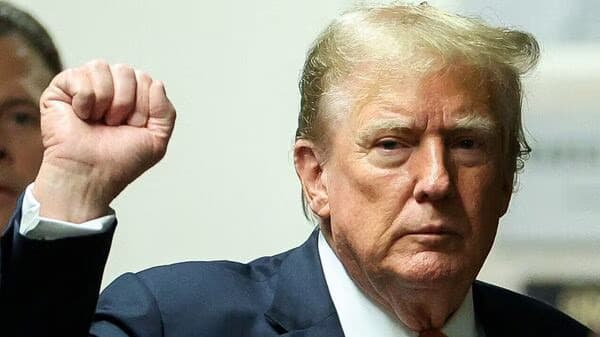
Trump’s $100,000 H-1B Visa Fee Faces Legal Challenge from Unions, Employers
Plaintiffs claim Trump exceeded his authority by imposing massive fees on highly skilled foreign workers.
A coalition of unions, employers and religious organisations filed a lawsuit on Friday seeking to block President Donald Trump’s bid to impose a $100,000 fee on new H-1B visas for highly skilled foreign workers.
The lawsuit, filed in federal court in San Francisco, is the first to challenge a proclamation Trump issued two weeks ago announcing the fee, as the Republican president moves to further restrict immigration to the United States.
Plaintiffs include the United Auto Workers union, the American Association of University Professors, a nurse recruitment agency and several religious organisations. They argue that Trump’s power to restrict the entry of certain foreign nationals does not allow him to override the law that created the H-1B visa programme.
White House spokeswoman Abigail Jackson said in a statement that the administration had engaged in lawful actions “discouraging companies from spamming the system and driving down American wages, while providing certainty to employers who need to bring the best talent from overseas.”
The programme allows US employers to hire foreign workers in specialty fields, with technology companies in particular relying heavily on H-1B visa holders.
Critics of H-1Bs and other work visa programmes say they are often used to replace American workers with cheaper foreign labour. However, business groups and major companies argue that H-1Bs are essential to addressing a shortage of qualified American workers.
Employers who sponsor H-1B workers currently typically pay between $2,000 and $5,000 in fees, depending on company size and other factors.
Trump’s order bars new H-1B recipients from entering the United States unless the sponsoring employer has made an additional $100,000 payment. The administration has stated that the order does not apply to current H-1B holders or those who submitted applications before 21 September.
In his unprecedented order, Trump invoked his power under federal immigration law to restrict the entry of certain foreign nationals deemed detrimental to US interests. He claimed that high numbers of lower-wage workers in the H-1B programme have undermined its integrity and threatened national security, including by discouraging Americans from pursuing careers in science and technology. He said the “large-scale replacement of American workers” through the H-1B programme jeopardises the country’s economic and national security.
The plaintiffs argue that Trump has no authority to alter a comprehensive statutory scheme governing the visa programme and cannot, under the US Constitution, unilaterally impose fees, taxes or other revenue-generating mechanisms, a power reserved for Congress.
“The Proclamation transforms the H-1B programme into one where employers must either ‘pay to play’ or seek a ‘national interest’ exemption, which will be granted at the discretion of the Secretary of Homeland Security -- a system that opens the door to selective enforcement and corruption,” the lawsuit stated.
The groups contend that agencies, including the US Department of Homeland Security’s US Citizenship and Immigration Services and the State Department, adopted new policies to implement Trump’s proclamation without following proper rulemaking processes or considering how “extorting exorbitant fees will stifle innovation.”
The H-1B programme provides 65,000 visas annually to employers hiring temporary foreign workers in specialised fields, with an additional 20,000 visas for workers with advanced degrees. Visas are granted for three to six years.
India was by far the largest beneficiary of H-1B visas last year, accounting for 71 per cent of approved visas, while China was a distant second at 11.7 per cent, according to government data.
For any enquiries please fill out this form, or contact info@thelawreporters.com and Follow The Law Reporters on WhatsApp Channels